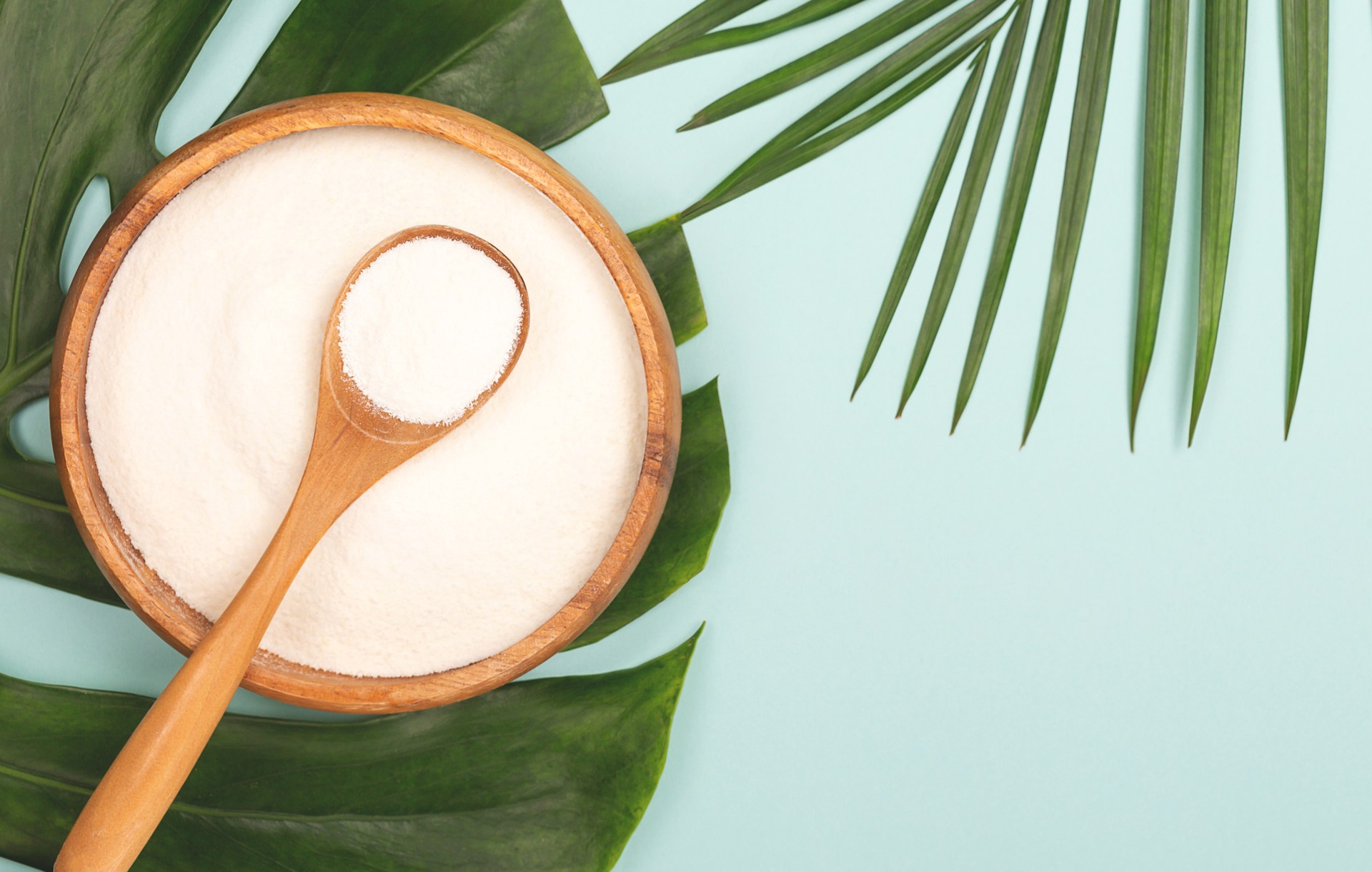Boosting natural collagen and revenue through nutricosmetics
Collagen supplements are hot right now. They’re touted as good for your hair, nails, joints, and skin – with good reason. Collagen is the most abundant protein in the body, and supplementation can help boost levels that may be waning due to aging or other factors. The professional beauty market has recognized the importance of collagen for some time, especially as it relates to skin.
Today, there are a multitude of choices for “ingestible” products to support collagen for healthier skin. Let’s take a look and learn more about the role collagen plays and factors to consider for integrating collagen products as an incremental revenue source for your practice.
WHAT EXACTLY IS COLLAGEN AND WHAT DOES IT DO?
Collagen is a protein that makes up the structural matrix of connective tissues throughout the body, including skin, cartilage, bones, tendons, and even organs. Collagen helps tissues resist stretching or pulling forces, which is important for many of the body’s functions, from firm and youthful skin to wound healing.
Your body can make its own collagen, but it requires special building blocks called amino acids. Some amino acids can be made by the body, but others must come from diet and are called essential amino acids. The amino acids that are used to build collagen are conditional aminos acids such as arginine, proline and glutamine to name a few. These amino acids can be synthesized by the body under normal conditions but may need to come from diet or supplementation, especially when your body is under stress.
[ihc-hide-content ihc_mb_type=”show” ihc_mb_who=”2,4,6,7,5″ ihc_mb_template=”3″ ]
BOOSTING COLLAGEN FROM THE INSIDE-OUT
There are generally three basic ways to provide your body with a collagen boost: ingestible dietary collagen in pill form or powder, dietary such as protein rich foods, or give your body the ingredients it needs to create more collagen on its own.
COLLAGEN FROM DIET AND SUPPLEMENTATION
Collagen can be found in the connective tissues of animals, like the bones, hooves, and hides, as well as nerve tissue. The problem is dietary collagen cannot be absorbed by the body in its whole form, so it needs to be hydrolyzed, this is a process that breaks down collagen into more digestible pieces. There can be a few issues with this. You see, your body is going to break down collagen like any other protein, into its building blocks. The human body is very efficient and prioritizes its needs. Once those building blocks are available, they may, or may not go back towards replenishing collagen. In fact, they likely won’t. Your body is going to use them for what it needs most right that minute.
There are different qualities in the types of collagen. For example, marine collagen breaks down at low temperatures, which limits its effectiveness.
SUPPORT THE BODY’S NATURAL COLLAGEN PRODUCTION
This way, we provide it with everything it needs, for example, vitamin C, an important antioxidant for skin care, is also a necessary cofactor in collagen synthesis. Without it, the process simply can’t happen. Other important nutrients include zinc, and folate. Folate (vitamin B9) is essential for collagen production. Folate occurs naturally in foods, while folic acid is the synthetic form of folate. It’s important to ensure your diet includes B9 in the form of folate. Folate 5-MTHF has an advantage over synthetic folic acid because 40% of women carry gene variants which limits the benefits of a synthetic, this primarily due to absorption into a usable form.
INCORPORATING COLLAGEN “NUTRITION” INTO A BUSINESS PRACTICE
“Science and medical research will continue to create next generation ingredient technology, this will change the way we approach multiple skin issues” states Kelli Anderson, CEO of California Skincare Supply to the esthetician, aesthetic, medical-spa, and dermatology beauty markets. This illustrates the importance of an ongoing education to the business of skincare.
As business owners, we have an opportunity to offer educational information through the relationships we have developed with our clients.
Beauty nutrition and this new and exciting sub-category called nutricosmetics are the latest trends and are here to stay. A savvy business practice with retail skincare products can now incorporate high quality nutricosmetic supplements (“ingestibles”) to the retail mix. This is a win-win, as you help a client with skin health, and overall wellness Supplementswhile building an incremental revenue stream for the business.
LAST WORD Here are some important take-away points: Collagen is essential for skin, hair, muscle, and joint health, wound healing and athletic recovery. Your body can create collagen, but it must have the required amino acids and micronutrients to do the job. There are differences between collagen sources, diet, and feeding your body what it needs to make its own collagen.
[/ihc-hide-content]













